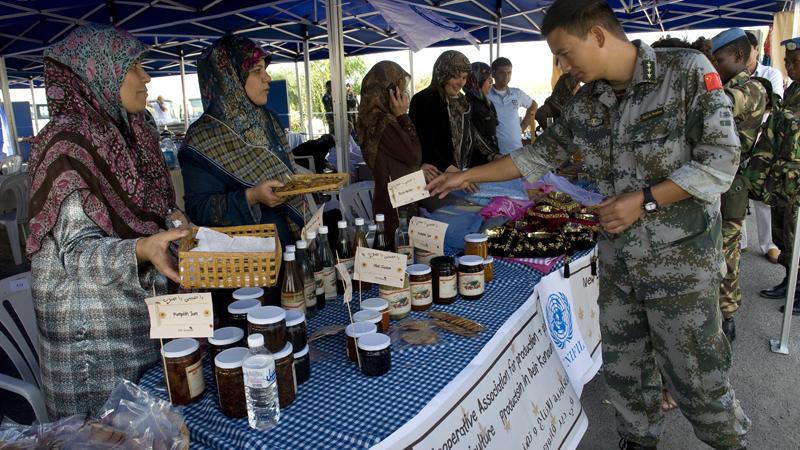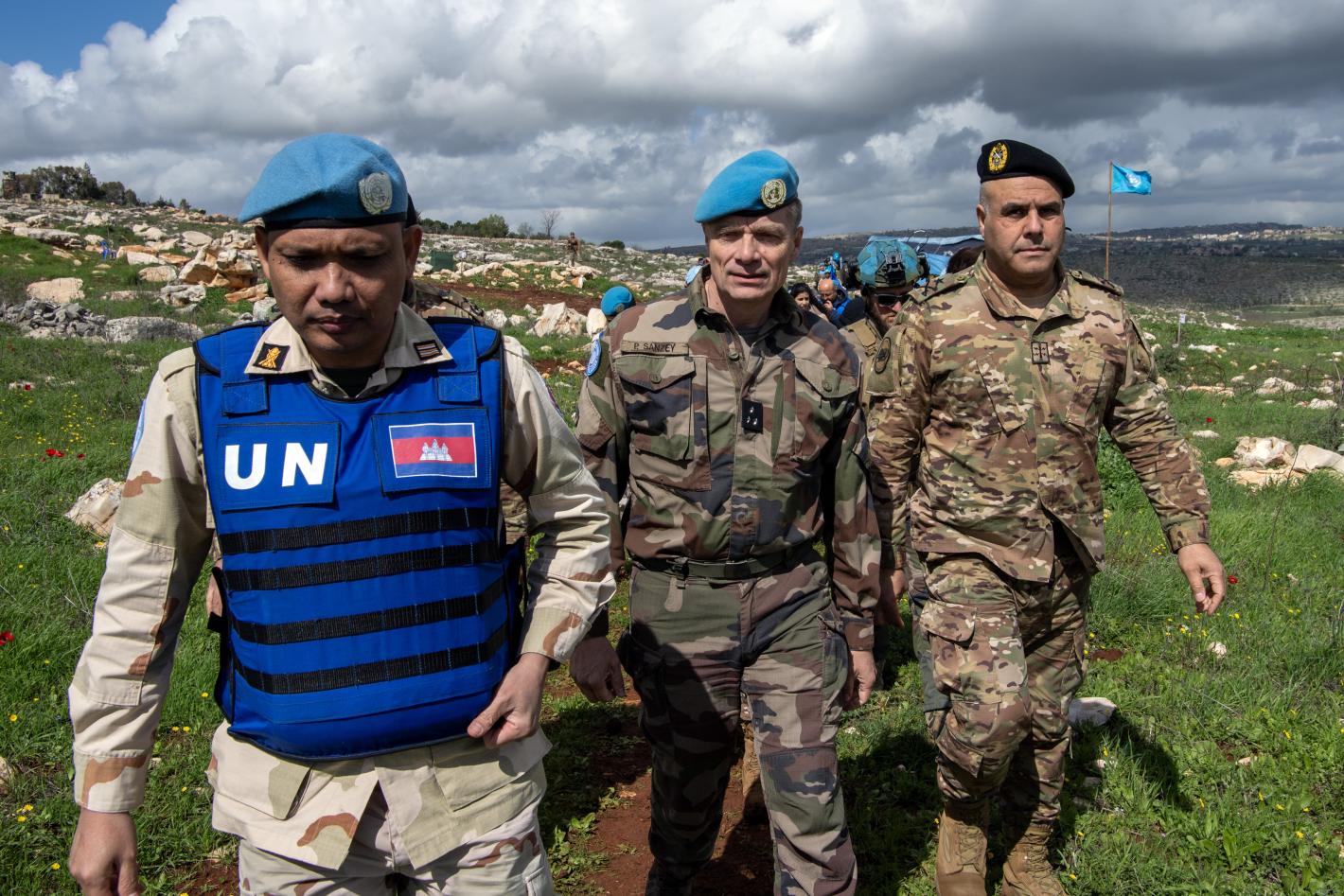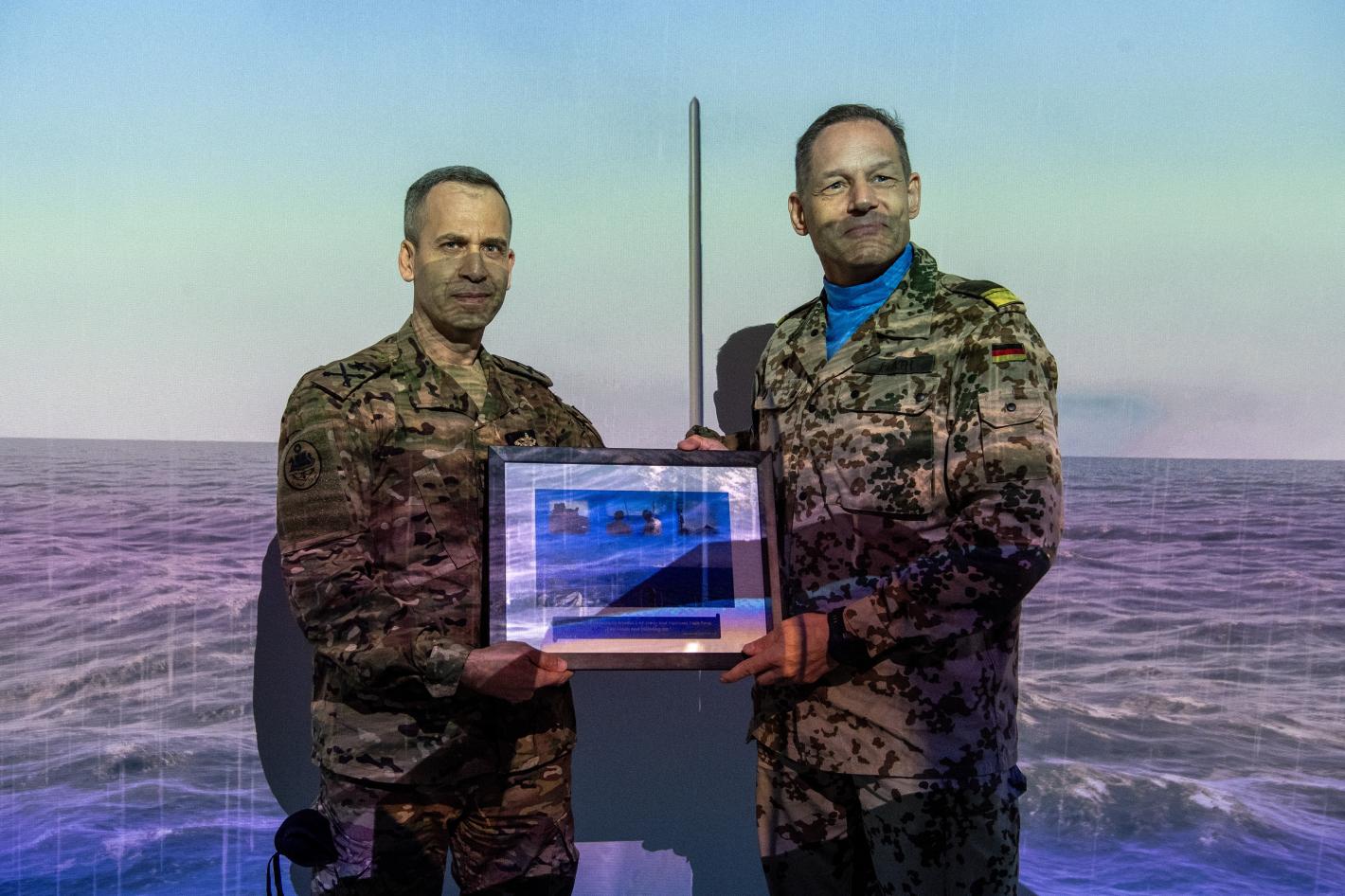(You are with UNIFIL Radio programme – Salam from the South)
Salam from the South – UNIFIL: Economic Dimension (part 1)
The mere presence of over 12,000 peacekeepers became an important element not only in the political landscape of south Lebanon but its economic life as well.
Money the peacekeepers are spending generates business for local shops and services, thus providing livelihood for many Lebanese. However, this is just one side of the story, as a Lebanese economist Dr. Ghazi Wazni says:
Wazni: The presence of the UN forces in the south and the communication channels UNIFIL has been maintaining with various parties...provide a stability of a kind, so that positive relationship and positive circumstances became the factors that enhance economic progress.
At the same time, it constitutes a factor that enhances developmental progress in the region.
In other words, by maintaining the cessation of hostilities and by ensuring stability in the region, UNIFIL, in cooperation with the Lebanese Army, has created an environment conducive for economic development.
ATMOS (a construction site)
Just in the centre of UNIFIL headquarters in Naqoura a Lebanese construction company is building up a new office
for the Force. Company's chairman Tony Jerdak speaks to UNIFIL's Salam from the South.
Tony: We are building a three-storey administrative building serving, for example, for different gatherings, as the conference-room and as the multipurpose halls. It's a medium-size project from a budget point of view: it costs 1.2 million dollars... This project alone created 50 new jobs.
For Mahmoud, a resident of Naqoura village, it gave an opportunity for employment and steady income for his family
Mahmoud: The Company opens job opportunities for many people from the south due to this construction project. When we have a job, our families feel its positive impact... What can I say? Thanks a lot to UNIFIL which helps southerners a lot.
NARR UNIFIL can procure whatever it needs either locally or around the world through the tenders open to all bidders. But quite often it opts for the Lebanese market if it is possible to find the required goods or services here, and if the local bidders offer the better terms. Rana Istwani from the procurement unit:
Rana: During the last financial year, 104 Lebanese vendors and firms were awarded roughly 34 million dollars, or 40 percent, of the total procurement budget of more than 80 million dollars. Only for fuel we pay annually around 18 and a half million dollars to our Lebanese supplier.
Good chunk of our budget - nine and a half million dollars - goes to the Lebanese construction firms which are benefiting from UNIFIL's increasing demand for new premises or renovation of the old ones.
Industrious ordinary Lebanese have turned the needs of the peacekeepers – like the need to food or laundry service – into good business opportunities for themselves. Chef Samir who set up his restaurant in front of UNIFIL headquarters is the case in point.
ATMOS (Richard and Achit ordering food)
Samir has been running this business for 25 years. He started from scratch when he fled to Naqoura from fighting elsewhere in 1985. In a way, catering for UNIFIL helped him to rise from the ashes. His commitment to work and culinary skills brought him lots of customers.
Samir: Spanish, some French,a bit of Italian people. But mainly civilians who come to eat. Mr. Milos Strugar, Mr. Richard, Madam Cornelia...
Richard: I come to Samir because the food is good and fresh and the location is perfect. It is just in front of my office and I have been coming here for the last 11 years...Samir is known for having one of the best fish in Naqoura. The prices sometimes vary depending on the weather and the owner's mood, but it's acceptable.
Lots of souvenir shops, food stores, laundry services and small restaurants which have been set up near all UNIFIL main bases attested one more time to the economic attraction of the Force. (----link to the Al Janoub article)
Mousa, the owner of a food store in Naqoura, says that UNIFIL presence – quote/unquote - reduces many burdens on the southerners.
Mousa: I am responsible for 3 or 4 families. I only live from this shop. I have been working with UNIFIL for 25 years. I made not a penny from other sources. My children got married and got their own children and work with me.
My parents are old now and I take care of them. Personally I'm ...earning enough to be satisfied In some cases UNIFI's presence in the south gave life to whole new lines of business in the local economy, like the production of souvenirs carrying UNIFIL symbols on them.
In other cases, it has opened new opportunities for existing industries, for example in the hotel sphere. Mohamed Bdeir, owner of the Platinum Hotel in Tyre, is one of those who cashed in on UNIFIL's presence.
Mohamed: We opened our hotel right after 2006. There was a need for such a hotel to accommodate the huge number of UNIFIL staff and journalists who came after the war. Nowadays we have an exclusive contract with UNIFIL. Still the majority of our customers are from UNIFIL.
Though their number is decreasing as many of them prefer to rent accommodations. But still when they first arrive to Lebanon, they stop – at least for 3-4 days – at our hotel.
UNIFIL's economic impact goes far beyond Naqoura. One can feel it in Tibnin, Marjayoun, Harris and other places where the international peacekeepers are based or places they visit. It is safe to say that the Force's economic impact is felt everywhere in south Lebanon and beyond.
Though its main focus was and still is on peacekeeping activity to ensure safety and stability for each and everyone in its area of operations.
If you have got any question about the programme you have just listened to or you want to know more about UNIFIL activity, or if you would like to suggest a topic for our future radio episodes, then please contact us. Our email is unifil-pio@un.org. Postal address is Radio Unit, UNIFIL Headquarters, P.O.Box 199, Lebanon. We will be glad to hear






